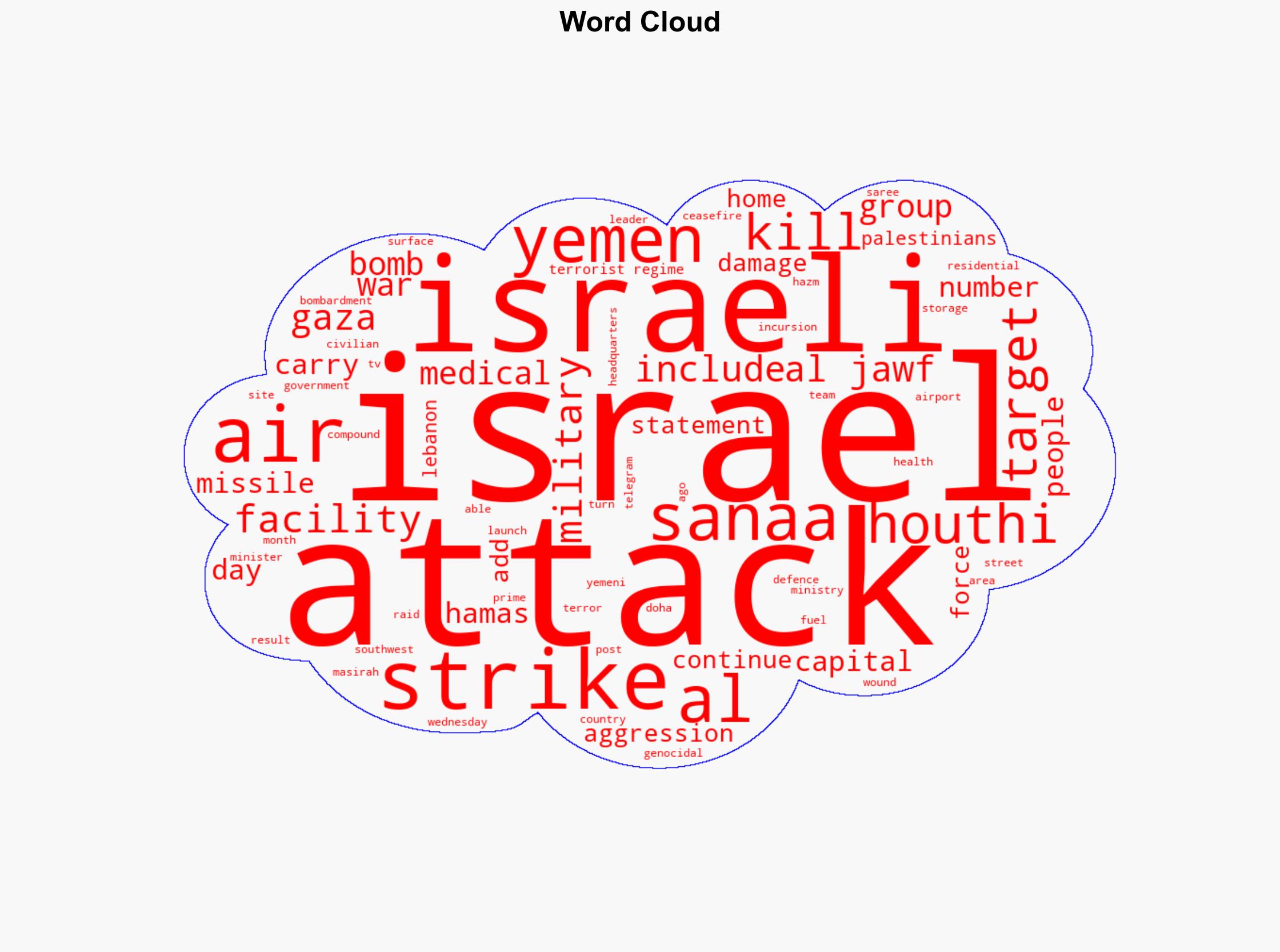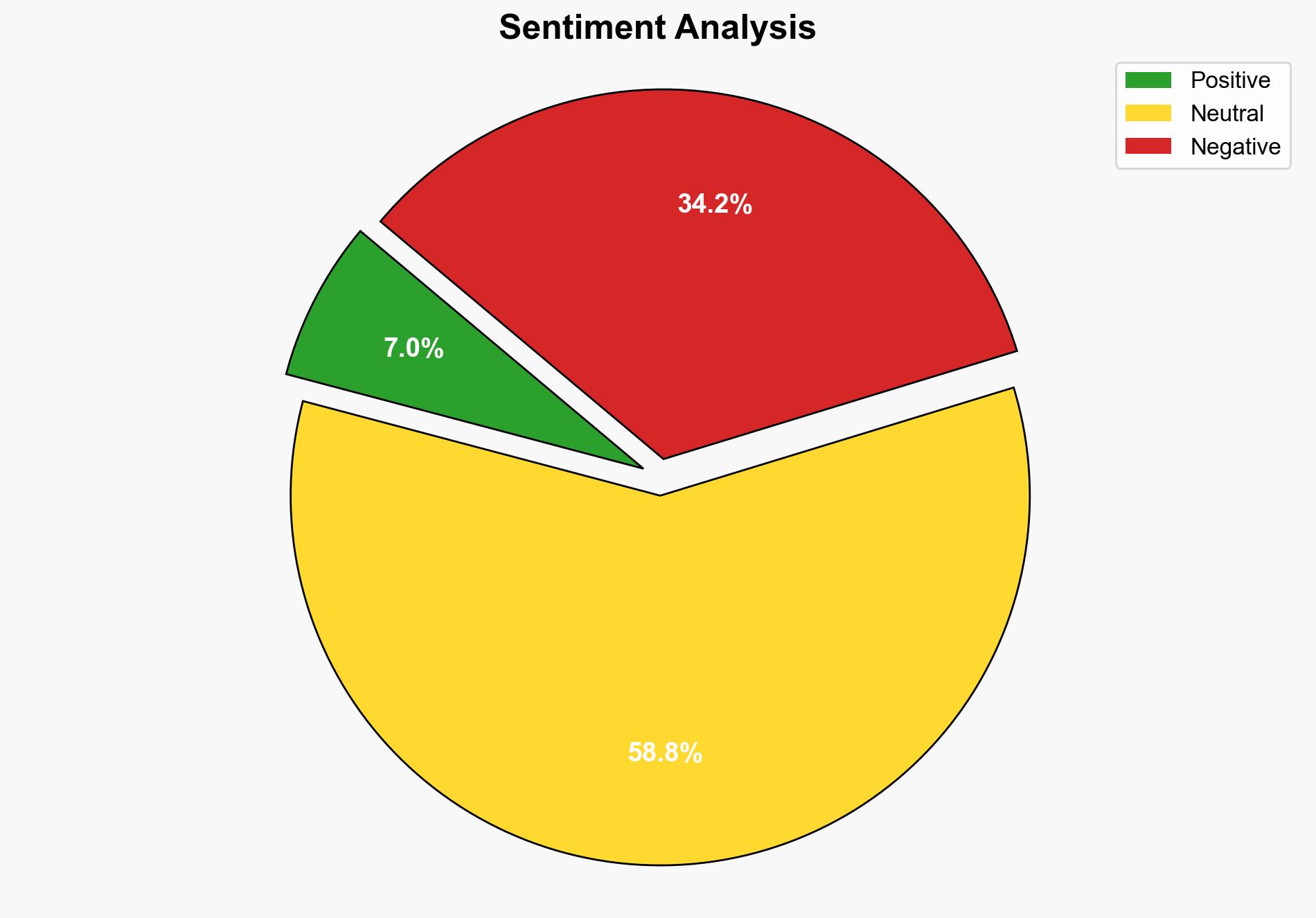Israel attacks Yemen capital Report – Al Jazeera English
Published on: 2025-09-10
Intelligence Report: Israel attacks Yemen capital Report – Al Jazeera English
1. BLUF (Bottom Line Up Front)
The most supported hypothesis is that Israel’s airstrikes in Yemen are a strategic response to Houthi drone attacks on Israeli territory, specifically targeting military and logistical assets to deter further aggression. Confidence level: Moderate. Recommended action: Monitor regional military movements and diplomatic communications to anticipate further escalations or de-escalations.
2. Competing Hypotheses
1. **Hypothesis A**: Israel’s airstrikes in Yemen are a direct response to a Houthi drone attack on Ramon Airport, aiming to degrade Houthi military capabilities and deter future attacks.
– **Supporting Evidence**: Israeli military statements confirm targeting Houthi military sites; Israeli Prime Minister cites retaliation for the drone strike.
– **Contradictory Evidence**: Reports of civilian casualties and infrastructure damage may suggest broader objectives beyond military deterrence.
2. **Hypothesis B**: The airstrikes are part of a broader Israeli strategy to weaken regional adversaries aligned with Iran, using the Houthi attack as a pretext.
– **Supporting Evidence**: Historical context of Israeli strikes in multiple countries suggests a pattern of targeting Iranian proxies.
– **Contradictory Evidence**: Lack of direct evidence linking the strikes to broader regional objectives beyond immediate retaliation.
3. Key Assumptions and Red Flags
– **Assumptions**: Both hypotheses assume that the Houthi attack was a significant enough threat to warrant a military response. Hypothesis B assumes a coordinated regional strategy by Israel.
– **Red Flags**: Inconsistent casualty reports and damage assessments raise questions about the precision and intent of the strikes. The absence of independent verification of the targets hit is a critical gap.
4. Implications and Strategic Risks
– **Escalation Risks**: Continued military exchanges could lead to broader regional conflict, drawing in additional state and non-state actors.
– **Geopolitical Risks**: Strikes may strain Israel’s relations with countries sympathetic to the Houthi cause or those advocating for regional stability.
– **Economic Risks**: Disruption of oil and gas facilities could impact global energy markets, exacerbating economic tensions.
5. Recommendations and Outlook
- Enhance intelligence-sharing with regional allies to improve situational awareness and response capabilities.
- Engage in diplomatic efforts to de-escalate tensions, potentially involving neutral mediators to facilitate dialogue.
- Scenario Projections:
– **Best Case**: Diplomatic interventions lead to a ceasefire and resumption of peace talks.
– **Worst Case**: Escalation into a broader regional conflict involving multiple state actors.
– **Most Likely**: Continued tit-for-tat strikes with intermittent diplomatic engagements.
6. Key Individuals and Entities
– Benjamin Netanyahu
– Yahya Saree
– Ahmed Al Rahawi
7. Thematic Tags
national security threats, counter-terrorism, regional focus, geopolitical strategy





